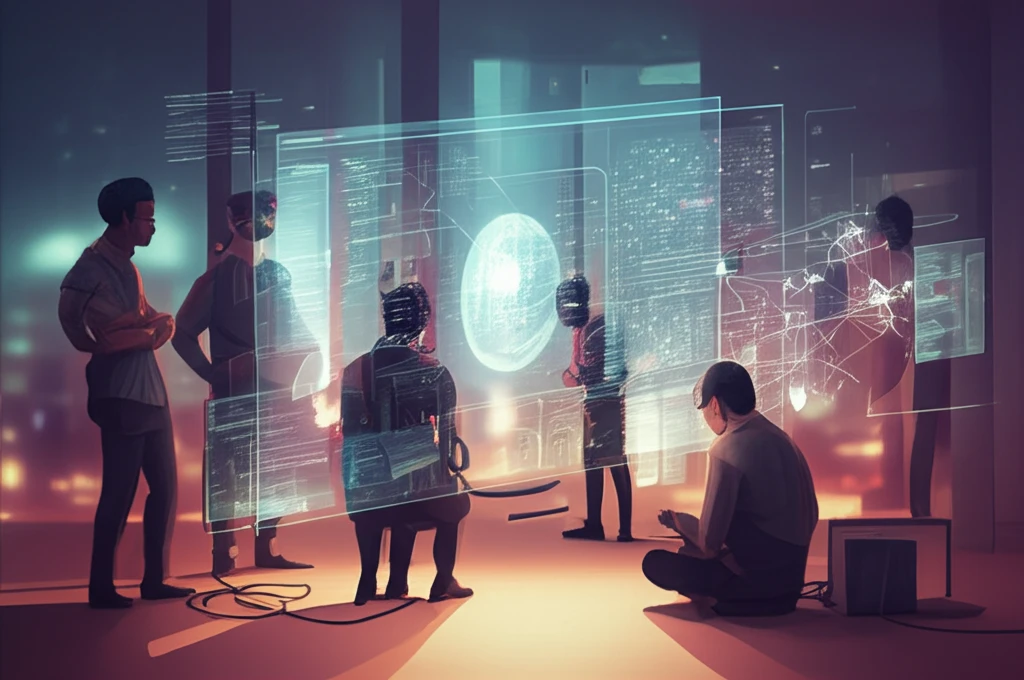
Unlock the Power of Teamwork: How Personalized Teammate Recommendations Can Revolutionize Software Development
"Tired of solo struggles? Discover how AI-driven teammate matching can boost your coding projects and skyrocket your success in crowdsourced software development."
The world of software development is constantly evolving, with crowdsourcing platforms emerging as key hubs for innovation. These platforms connect developers from all corners of the globe, fostering a dynamic environment where individuals can contribute to diverse projects. While many developers initially tackle tasks independently, the complexity of modern software often demands collaboration. Joining forces with others can significantly enhance both productivity and the overall quality of the final product.
However, forming effective teams within these crowdsourced ecosystems isn't always a walk in the park. Existing platforms often lack the sophisticated tools needed to match developers based on their individual skills, preferences, and collaborative styles. This can lead to missed opportunities for synergistic partnerships and hinder the potential for groundbreaking innovations. Imagine sifting through countless profiles, trying to decipher who would be the perfect fit for your project – it's a daunting task, to say the least.
But what if there was a better way? What if artificial intelligence could step in and analyze vast amounts of data to recommend the ideal teammates for any given developer? This is precisely the challenge addressed by a groundbreaking study on personalized teammate recommendations for crowdsourced software developers. This research delves into the factors that drive successful collaboration and proposes an AI-powered solution to connect developers in meaningful and productive ways.
Decoding the Secrets of Successful Software Teams: What Drives Collaboration?

The key to crafting an effective teammate recommendation system lies in understanding the nuances of human collaboration. It's not just about skills; it's about compatibility, shared goals, and a willingness to learn from one another. To uncover these crucial factors, researchers conducted an in-depth empirical study on Kaggle, a popular crowdsourcing platform for data science and machine learning. By analyzing developer interactions, project outcomes, and team dynamics, they identified three core elements that significantly influence a developer's desire to collaborate:
- Closeness with Teammates: How well do you know and trust your potential teammates? Existing relationships and shared experiences can foster a sense of camaraderie and facilitate smoother communication.
- Expertise Difference with Teammates: Do you want to work with someone who possesses similar skills to reinforce your strengths, or do you prefer a teammate with complementary expertise to broaden your knowledge base?
- Expertise Gain Through Collaboration: Are you seeking a collaborative experience that will not only contribute to the project's success but also enhance your own skills and expertise? The opportunity for mutual learning can be a powerful motivator.
The Future of Software Development: Enhanced Collaboration Through AI
The personalized teammate recommendation system represents a significant step forward in optimizing crowdsourced software development. By leveraging AI to understand and quantify the dynamics of human collaboration, this system has the potential to unlock new levels of innovation and productivity. As the field continues to evolve, future research will explore ways to incorporate additional factors, such as personality traits and communication styles, to further refine the recommendation process. Ultimately, the goal is to create a seamless and intuitive experience that empowers developers to form high-performing teams and tackle even the most complex software challenges.
